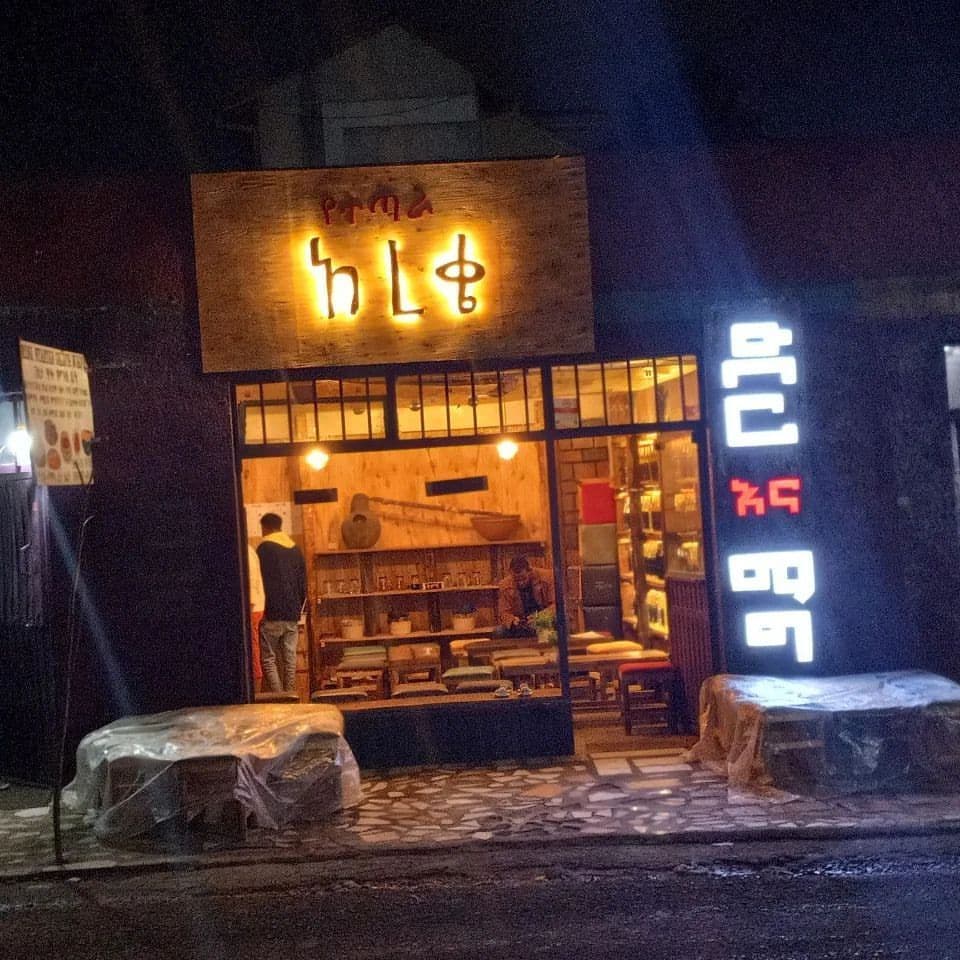Progress for 0 ad
Progress for 1 ad
Progress for 2 ad
Progress for 3 ad


Daniel Metaferiya
Addis Ababa, Ethiopia

As the afternoon heat subsides on a windy Thursday, scores of residents in Adama City, 91 km from the capital, flock to a lush public garden. Groups of travelers in town for a night mingle with residents at Rediet’s Greenery, knocking back cups of the locally brewed spirit ‘Areqe’. Weary travelers stay the night at nearby motels looking to get a few rounds from a refreshing tap while locals savor the homely taste.
“We serve the purest brew,” proclaims the proud owner.
Muluqen Gebeyew travels nearly 200 km every couple of weeks into Gojam and Debre Birhan in Amhara Regional State to source his prized products. He attributes Rediet’s loyal customer base to the expansive menu of spirits at affordable rates of 30 birr a shot.
“Gebto is our most prized offering,” Muluqen says.
After nearly two decades in business, Rediet’s has gone through a revival over the past two years as consumers shift to local spirits amid rising costs of factory products. Nearly 25 liters of Areqe is consumed every two days from Rediet’s by a new wave of Areqe aficionados.
Areqe is prepared by mixing powdered buckthorn leaves and malted maize. The first distillation is processed with water to give it a smoothness and consistency as it ferments for about five days.
According to research at Arba Minch University, Department of Biology, College of Natural Sciences, the estimated alcohol content of the first batch lies between 22–28%, with a possibility of increasing to 34.09%. The second batch with a higher alcohol content averages close to 45%.
This powerful blow packed into small pinches at affordable prices is driving its resurgence in consumer preferences. It's not just Areqe, though—other traditional brews like Tej and Tela are also making a comeback.
Among those drawn to these drinks is 29-year-old Kaleab Solomon, a regular at Tiruye’s Areqe as the price of beer nearly doubled over a three-year period. After a long day of driving a rickshaw, he has three shots before heading home.
“I am not spending fifty birr for a beer,” Kaleab told Shega.
Tiruye’s sells half a litter of Areqe for 25 birr to a customer base largely composed of late 20-somethings. With no signs at the door, everyone comes through word of mouth to get their fillings of the powerful colorless brew.
Sixty percent excise tax on inputs and 80% on the finished product have given way to increased prices by local alcohol manufacturers. Prices for a bottle of beer have shot up by an average of 10% multiple times in three years, nudging consumers to pursue affordable alternatives. With beer accounting for nearly 98% of the formal alcohol market in Ethiopia, the price surge has introduced a new competition for large beer manufacturers and an opportunity for entrepreneurs.
Related- Discover the Chemical Engineers Making Tej in a Lab
Yohannes Berhe, an artist who goes by Jhada King, noticed the brewing demand before deciding to launch his own product. Under the name Gete, the musician leased a 300 sqm plot in Adama’s outskirts and set off to produce the fruit-flavored spirit.
“We expanded to four products in three years,” Jhada told Shega.
What began with a capital of 200,000 birr is quickly expanding to Asella and Dire Dawa cities alongside a factory upgrade from its current capacity of five thousand liters. Jhada expects further growth as the marked shift in consumer preferences nurtures new palates.
Areqe’s resurgence is not restricted to its affordable price, as innovative branding by some companies is placing it among top-shelf products. Bars and lounges in Addis Ababa are increasingly hanging banners that read “We have Areqe” at their doors.
Saba Wondfrash and Tewodros Habte established a company two years ago that sells Areqe in sleek bottles of 890 and 220 ml. Dir ena Mag bottles priced between 250 and 900 birr gleam with a distinctively Ethiopian packaging that pops out from offerings on the bar's shelf.
Saba recalls noticing a shortage of products that pay homage to Ethiopia’s unique brewing, tastes, and rituals in the market. She hopes to establish the product as an offering that blends quality standards with local traditions.
“Every bottle delivers a unique experience,” the CEO told Shega.
Dir ena Mag started off as an embroidery company with a focus on craftsmanship before branching off into coffee shops and later into spirits. A unique filtration and cleaning system gives the spirit an earthy flavor that resonates with customers.
“We strive for quality, innovation, and meaningful connections,” says Saba.
👏
😂
❤️
😲
😠

Daniel Metaferiya
Daniel Metaferiya is a writer, journalist and radio host, with a keen interest in technology. He follows developments in Ethiopia's startup ecosystem closely and is passionate about profiling unique MSMEs.
Your Email Address Will Not Be Published. Required Fields Are Marked *